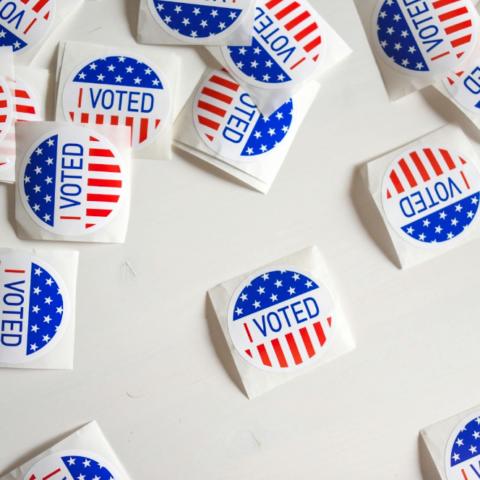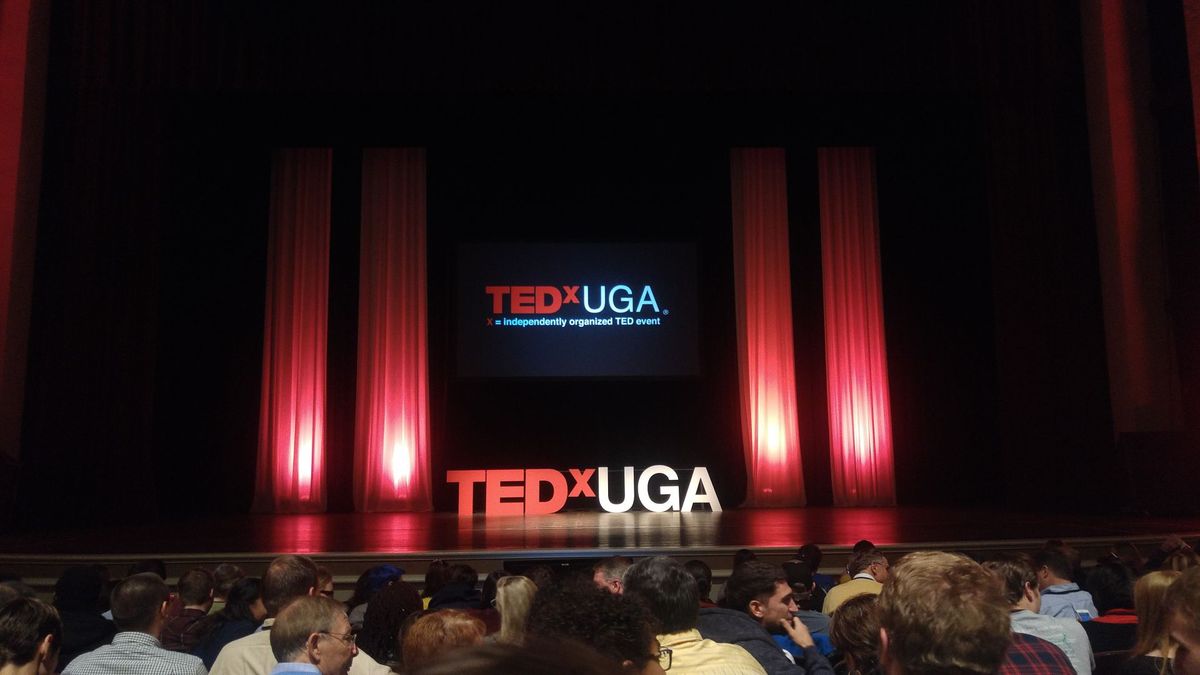By: Uzma Chowdhury and Andrew Roberts
Thirty-five dedicated students clad in red and black business formal gathered on the chilly, pitch-black morning of Thursday, Feb. 14, and piled onto a UGA bus. Their destination? “Dawgs at the Dome,” an event organized by the Student Government Association External Affairs team. The first effort of its kind at UGA, the intent was “communicating the student voice on issues affecting Georgia students,” according to materials distributed to participants. The group of students consisted of campus representatives from Georgia Political Review, the Student Government Association, the Red & Black, Young Democrats, and College Republicans, selected to “provide a pivotal voice on these issues.” The word “issues” here refers primarily to initiatives on the future of the HOPE scholarship, but also an alcohol amnesty law.
The day began with a two-hour bleary-eyed drive to Atlanta. Perhaps because of the dreadful pre-dawn earliness of the hour – there are few words to describe 5:45 a.m. besides “ungodly” and “obscene” – the alternate route from Athens was disconcerting to our own Andrew Roberts. He jerked up in terror, looked frantically around as we exited Highway 316 and whispered to fellow GPR staff member, Uzma Chowdhury, “We’re not on 316 anymore…How are we getting to Atlanta?” Thankfully for Andrew,the bus driver knew what he was doing. The group arrived a little bit after 8:00 a.m., unloaded the bus, went through security and proceeded into the North Atrium of the Capitol.
There the UGA delegates were served a casual breakfast and mingled with legislators and other state leadership including Senator Tyler Harper (R-Ocilla), Senator Charlie Bethel (R-Dalton), Speaker Pro Tempore Jan Jones (R-Milton), Representative Spencer Frye (D-Athens) as well as University leadership including President Michael Adams and various professors. Governor Nathan Deal was tentatively scheduled to drop in, but was not in attendance.
At 9:45 a.m., about two hours of mingling and breakfasting having passed, the group departed to the House Gallery and Senate Gallery on the fourth floor to view session in progress. While the students did not actually get to see much in the way of debates or the passage of bills, the group did witness the House and Senate pass Resolution-219, recognizing Michael Adams for his service to the University of Georgia. Adams accepted the congratulations and offered his own gratitude to the legislators, saying, “No matter who is sits in my chair, our success is mutual.”
After session in the House and Senate the student group gathered in a conference room for lunch with a panel of UGA alumni now working in government. The panel included Rep. Stacey Evans (D-Smyrna), Ben Fry, Director of Communications and External Affairs for Lt. Governor Casey Cagle, Andrew Laarhoven, Budget and Policy Analyst for the Governor’s Office of Planning and Budget, Brian Robinson, Deputy Chief of Staff for Communications for Governor Nathan Deal, and Judson H. Turner, a former UGA student body President and the Director of the Environmental Protection of the Georgia Department of Natural Resources. This portion of the schedule was not intended for any sort of lobbying effort, but rather was designed as an informative discussion on how to get involved in government, campaigns, and elected positions.
Following the lunch panel and a 30 minute break, the “Legislator Drop-Ins” began, promised by SGA to be an afternoon “spent with us meeting key legislators about issues affecting students.” This portion of the day was very similar to the lunch panel in that it was primarily a question and answer session for each visitor. Scheduled members included Senator Charlie Bethel (R-Dalton), Senator Tyler Harper (R-Ocilla), Representative Spencer Frye (D-Athens), and Speaker Pro Tempore Jan Jones (R-Milton). While Bethel and Jones were not able to attend, unscheduled speakers also dropped in, including Senator Sam Watson (R-Colquitt/Tift/Thomas), Senator Scott Holcomb (D-Dekalb/Gwinnett) and Republican lobbyist Jay Morgan. Students asked questions and speakers offered their positions on HOPE or advice about careers. However students did not discuss their view on HOPE or the position of SGA in a manner that might inform policy. Rather the students learned more about alternative positions on HOPE from different politicians. Republican politicians generally asserted that HOPE should remain merit-based because the original purpose of HOPE was to keep the best and brightest in the state. Democratic politicians generally asserted that HOPE was originally intended to provide access to higher education to those students who could not otherwise afford it and thus should be needs-based or contain a needs-based component, such as Jason Carter’s suggestion of an income cap at $140,000.
While the event was advertised as “SGA’s first annual student lobbying day at the Georgia Capitol with the goal of communicating the student voice on issues affecting Georgia students,” the day’s actual activities were more informational and networking-oriented. Each panel took on an informational tone, rather than a lobbying one. The events of the day were very informative experiences for those students seeking to get involved in politics or build relationships with legislators. However, the breakfast, lunch panel, and legislator drop-ins were not necessarily venues with which to speak to lawmakers about student concerns, rather they were more oriented to the building of student-legislator relationships and networking.
While opinions were asked, lobbying was not necessarily done to the extent that it was advertised. Information was merely presented to the students, but not debated or promoted by students. It might be argued that the breakfast event was conducive to students lobbying, however, a note from the organizers of the event deterred the students from discussing policy. The note explained that the morning breakfast was a time for friendly conversation and “building relationships, not advocating for certain policy preferences.”
Lobbying, then, really did not occur at breakfast, during the sessions, the lunch panel, or the drop-ins. Arguably, the unscheduled half hour period following the lunch panel offered the only opportunity for students to individually approach lawmakers and actually discuss their opinions with legislators. Perhaps lobbying occurred after the campus representatives departed from the Capitol at 2:30 p.m. and a smaller student group including the SGA President, Vice-President, Treasurer, and Director and Assistant Director of External Affairs stayed at the Capitol, but this part of the day was not scheduled on the agenda or advertised to the campus representatives.
While the event was perhaps marketed a little bit incorrectly, considering it was supposed to be the first annual student lobbying day, it turned out to be, for the campus representatives, more of a learning experience. The day was incredibly planned, very organized, with an excellent variety of opportunities to make connections and build relationships, learn about the processes of the Georgia General Assembly, and meet UGA Alumni who now work in the political world, but it was not necessarily a day in which student lobbying occurred to the extent that the titular event indicated. The students in attendance had an amazing opportunity at the Capitol thanks to the hard work of SGA, but moving forward, as an annual lobbying event, perhaps next year’s event might include a more present and obvious sense of lobbying for every invited student. Overall, GPR had a wonderful time at the Capitol at the event, and looks forward to returning to this historical event next year and for many years to come.

